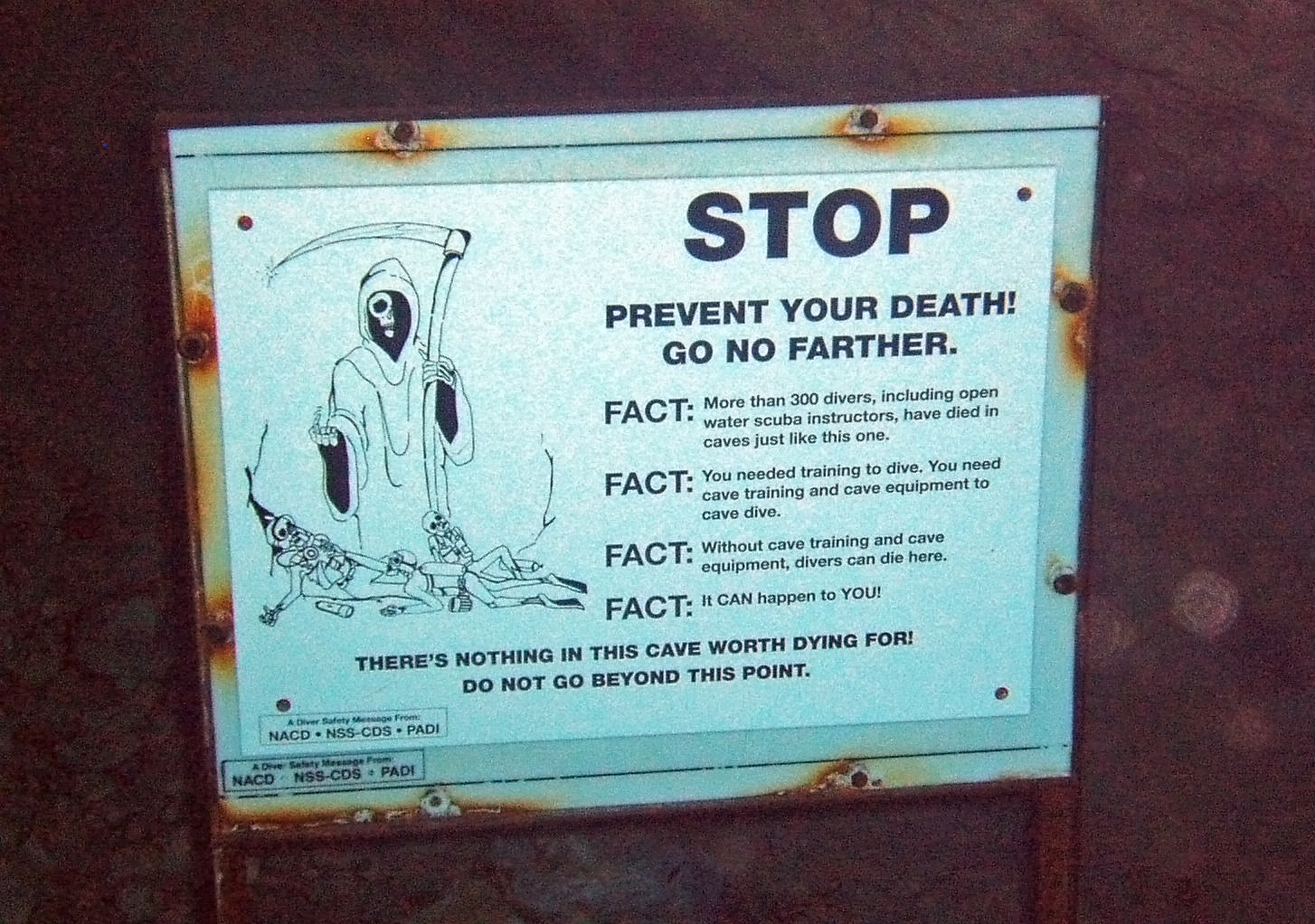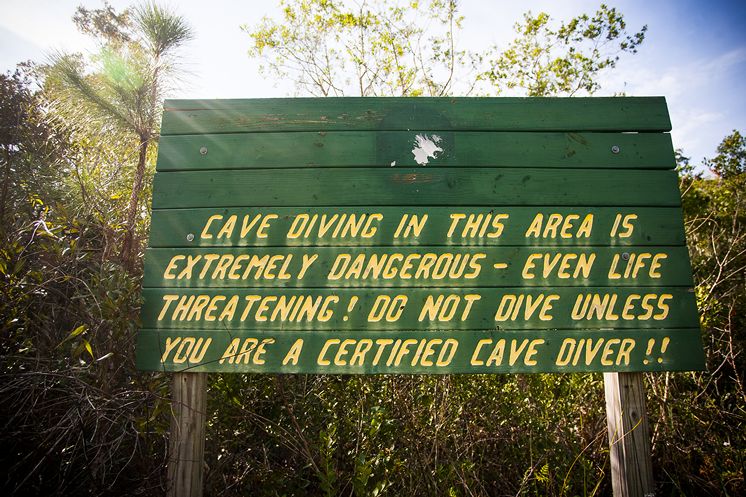CuzzA
Wetwork for Hire
I'm not cave or wreck trained.... So I say to anyone, "I'm not going in there." Note the period at the end of the last sentence.
I was actually surprised to see this thread at 6 pages long after I originally read the first couple posts the day the thread was created. It was pretty clear what happened and nothing more really needed to be said. (Unless new information was brought to light)
We are all made aware of the dangers of entering an overhead from our basic open water course. If an INDIVIDUAL makes the DECISION to violate that rule, well I'm not surprised to hear he/she died.
So what's the analysis here? Don't dive outside your training. I don't care if J. Cousteau himself came back from the dead and said, "Hey buddy, come dive this cave with me." As NetDoc pointed out, there's nothing worth dying for in there. Not even a dive with the ghost of J. Cousteau and certainly not some Mexican dive guide.
I will add it's constantly repeated on here that scuba training is not what it once was and divers are not trained well. There may be some truth to that; however, scuba related death statistics don't support that theory. More and more people take to the waters, yet diving related deaths have been slowy declining for decades.
At the end of the day, what can be learned from this... They weren't kidding when they taught you not to go in an overhead environment without being properly trained. Doesn't matter if you're in the US, Canada or Mexico. I believe most of these popular dive sites are well surveyed and maps can easily be acquired on the Internet. I think it's safe to assume anyone diving these sites know exactly what they are getting in to and have CHOSE to ignore the warnings from their training.
I was actually surprised to see this thread at 6 pages long after I originally read the first couple posts the day the thread was created. It was pretty clear what happened and nothing more really needed to be said. (Unless new information was brought to light)
We are all made aware of the dangers of entering an overhead from our basic open water course. If an INDIVIDUAL makes the DECISION to violate that rule, well I'm not surprised to hear he/she died.
So what's the analysis here? Don't dive outside your training. I don't care if J. Cousteau himself came back from the dead and said, "Hey buddy, come dive this cave with me." As NetDoc pointed out, there's nothing worth dying for in there. Not even a dive with the ghost of J. Cousteau and certainly not some Mexican dive guide.
I will add it's constantly repeated on here that scuba training is not what it once was and divers are not trained well. There may be some truth to that; however, scuba related death statistics don't support that theory. More and more people take to the waters, yet diving related deaths have been slowy declining for decades.
At the end of the day, what can be learned from this... They weren't kidding when they taught you not to go in an overhead environment without being properly trained. Doesn't matter if you're in the US, Canada or Mexico. I believe most of these popular dive sites are well surveyed and maps can easily be acquired on the Internet. I think it's safe to assume anyone diving these sites know exactly what they are getting in to and have CHOSE to ignore the warnings from their training.
Last edited:






